Tehran (Bazaar) : Washington remained adamant to exert pressure on Baghdad to find alternative for the Iranian gas, Harry Istepanian said in an exclusive interview with Bazaar.
He also explained that Trump’s Administration has reached to a conclusion that Iraq is unable to find an alternative to the Iranian gas on the short term.
Noting that Iraq energy dependence on Iran has been greatly politicized in the past, he said that Iraq will continue buying electricity and gas from Iran under extended periods of sanctions waiver (and rules, may be!) with possibility of lifting the blocks on Iranian frozen assets in the US.
Harry Istepanian is an independent energy expert based in Washington D.C. He is a senior fellow at the Iraq Energy Institute.
Following is the text of the interview.
Bazaar: A few months ago, Arab news sources reported that the GCC was talking with Iraqi officials to establish an electricity connection with the southern Iraqi province of Basra. This news show that Iraq's dependence on electricity imports from Iran has decreased, and this matter will isolate Iran. On the other hand, according to the long-standing and strong relations between the Islamic Republic of Iran and Iraq , and this fact that Iranian electricity has been exported to Iraq for many years and the Islamic Republic of Iran supplies a large part of the country's gas supply as well, if Iraq accepts the agreements with the Arab countries, which aim will be followed by Iraqi officials? Will the other countries be replaced?
Istepanian : Iraq’s demand for energy will continue to climb as the annual growth for electricity is between 7 – 9%. Although there has been significant increase in the electricity generation which has reached 20 GW last summer, but the peak demand also reached a new record high around 30 GW. Iraq demand for the fuel gas is now anywhere between 4,000 – 5,000 million scfd that cannot be met any soon.
Hence, Iraq will continue to depend on Iranian gas at least in the next 3 – 5 years. Iraq is also looking for other neighboring countries like GCC states, Jordan - Egypt, Turkey besides Iran for importing electricity but it might take 2 – 3 years before the interconnections with neighboring countries are completed and electricity tariff agreements have not been signed yet with some of these countries.
GCCI is expected to supply 500 MW to southern provinces while Jordan is expected to supply 500 MW to western provinces once the interconnections are completed. This is not enough to reduce the gap between the supply and demand which is estimated to be above 10 GW.
Bazaar: The United States is trying Iraq's economic ties with Iran and Baghdad's dependence on Tehran reduce severely. What do you think about this matter?
Istepanian : Iraq energy dependence on Iran has been greatly politicized in the past. Iranian gas supply to Iraq was exempted from CAASTA during Trump’s Administration. The waiver extension periods were a barometer for the escalation of the tension between the United States and Iraq somehow. Washington remained adamant to exert pressure on Baghdad to find alternative for the Iranian gas. But In my opinion, Trump’s Administration has reached to a conclusion that Iraq is unable to find an alternative to the Iranian gas on the short term.
It is most probable President Biden will unwind the sanctions that Trump imposed on Iran’s energy sector in return for a fresh JCPOA agreement despite this could be politically perilous for President Biden especially during his first year in the Office. Therefore, it is most likely Iraq will continue buying electricity and gas from Iran under extended periods of sanctions waiver (and rules, may be!) with possibility of lifting the blocks on Iranian frozen assets in the US.
Bazaar: What are the goals of GCC members in expanding Iraq's economic relations and energy supply? Do they have purely economic reasons?
Istepanian : The economic relations between Iraq and GCC states was patronaged by the US as part of reintegrating Iraq into the Arab world in an attempt to reinvigorate its economy, and reduce dependence on Iran somehow. Iraq’s relations with GCC countries have gone through tensions since the 2003 invasion and the local political groups since then were not very helpful to forge closer ties with the Gulf States as many Iranian-aligned groups look to closer Iraq ties with the GCC states might hurt them politically, particularly if spearheaded by the United States. The GCC approach toward Iraq is diplomatic, political and economic. However, the Iraq-GCC ties are unlikely to improve until the Gulf security is achieved especially between Iran and the Saudi Arabia. But this should not prevent attempts by Iraq and GCC states to foster their economic partnership especially in trade, energy, and transport.
3. Bazaar: According to the Iraqi Ministry of Electricity, Iraq is involved with a crisis due to this matter that Iran announced that it has reduced gas exports to Iraq from 50 million cubic meters to 5 million cubic meters in recent weeks and planned to reduce it further to 3 million cubic meters. On the other hand, no country except Iran has offered to sell gas to Iraq. What is your assessment of this decline?
Istepanian : The Iraqi government owes more than $5 billion in gas bills to the National Iranian Gas Company (NIGC), of which $3 billion remains blocked and inaccessible in TBI (Trade Bank of Iraq), and more than $2 billion is overdue debt according to NIGC officials. During the visit of Iran’s Energy Minister Reza Ardakanian, an agreement was reached on the payment mechanism for the unpaid bills with restoring the gas supply to the level before the crisis but this has not been achieved so far as gas supply is hovering below 7 million cubic meters.
In my opinion, the payment issue for the Iranian energy supply will continue since the payments for the Iranian gas are carried out through Iraq’s government accounts at the Federal Reserve Bank of New York which imposes sanctions on Iranian official bank accounts. Iraq’s government fears the New York Fed can freeze its accounts under U.S. sanctions law if it suspects the funds have violated the US law. Iraq is hoping Iran might reach a new agreement soon with the new US Administration that will lift the restrictions on the Iranian assets.
Bazaar: According to informed sources, Iraq has announced to its customers that it intends to launch its third type of oil export, called "Basra Medium", in January. Due to this matter that the country exported 2.4 million barrels per day of Basra oil in December and it is the second largest oil exporter in OPEC, how can it help its economic development and self-sufficiency through these exports
Istepanian : Basra Medium (API 29) is a new medium-sour crude that is created by splitting the existing Basra Light (API 33) production into two grades. Basra Light has been accounted for the bulk of the country’s exports and revenues. The move of the State Organization for Marketing of Oil (SOMO) aims to stabilize the quality of Iraqi crude especially for the Asian buyers to avoid later compensations for API gravity fluctuations.
The attempt to stabilize the crude oil prices is coinciding while the government has been bearing losses of about $2.5 – 3.0 billion per month compared to 2019 due to significant drops in the international oil prices and OPEC+ production reduction agreement. However, with recent international oil price recovery, the deficit in Iraqi federal budget for 2021 is expected to be less than what is originally anticipated at $45 billion.
The Iraqi government has been attempting to create sustainable sources of income to replace its income from oil, which has proven time and again to be a shaky source of income, and heavily dependent on political and economic variances.
Bazaar: What do you think about the delay in the implementation of the Grand Port of Al-Faw project
Istepanian :The Grand Port of Al-Faw project will allow Iraq an access to the Gulf’s deep waters for docking of large vessels. But the project has suffered from distinctive lack of delays since it was announced in 2011. The plan also includes building a railway network to connect Asian countries to the eastern part of Europe to cut off the transportation time by almost half through the Suez Canal by making Al-Faw a global transportation hub. The other potential traffic besides general cargo is to use the port for exporting oil, gas liquids as Iraq is planning to increase its oil export beyond 7 million barrels per day in the next 10 years. The port will gain strategic importance for Iraq especially that Kuwait Port Authority has decided to shelve the Mubarak Al-Kabeer port project on Boubiyan Island. It would be an ambitious project for any healthy economy.
The project was surrounded by controversies on its visibility and transparency since inception 10 years ago but the government has finally decided to sign the contract last December with South Korea’s Daewoo Engineering & Construction to build the first phase of the project after dismissing a more attractive offer from Chinese rivals sparking a serious of debates among the Iraqi parliamentarians of possible corruption allegations involving government officials.

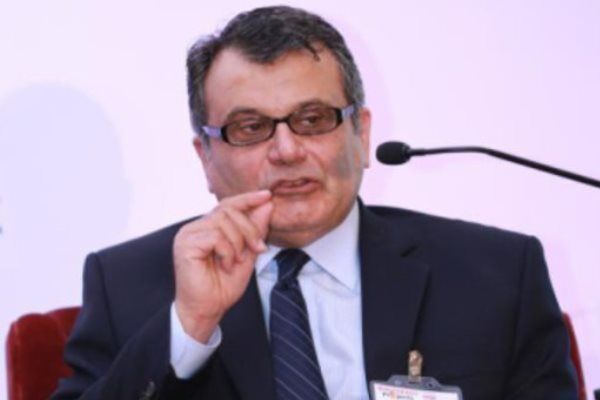





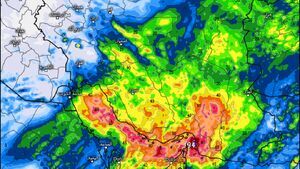
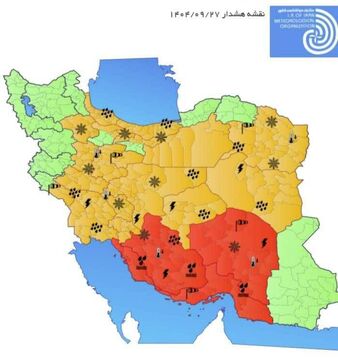
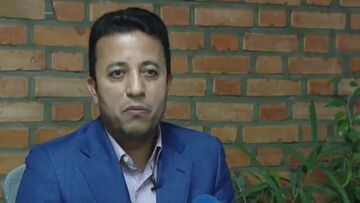
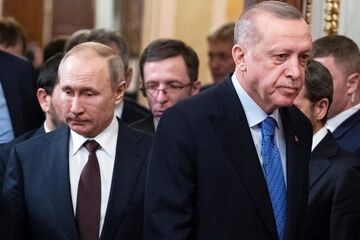



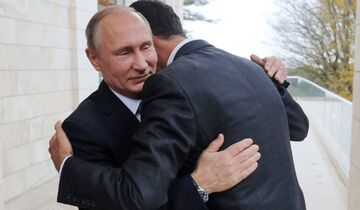
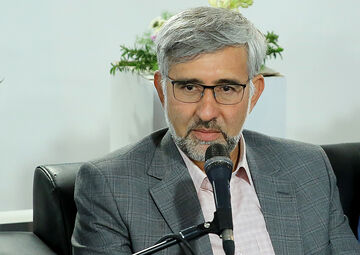
نظر شما